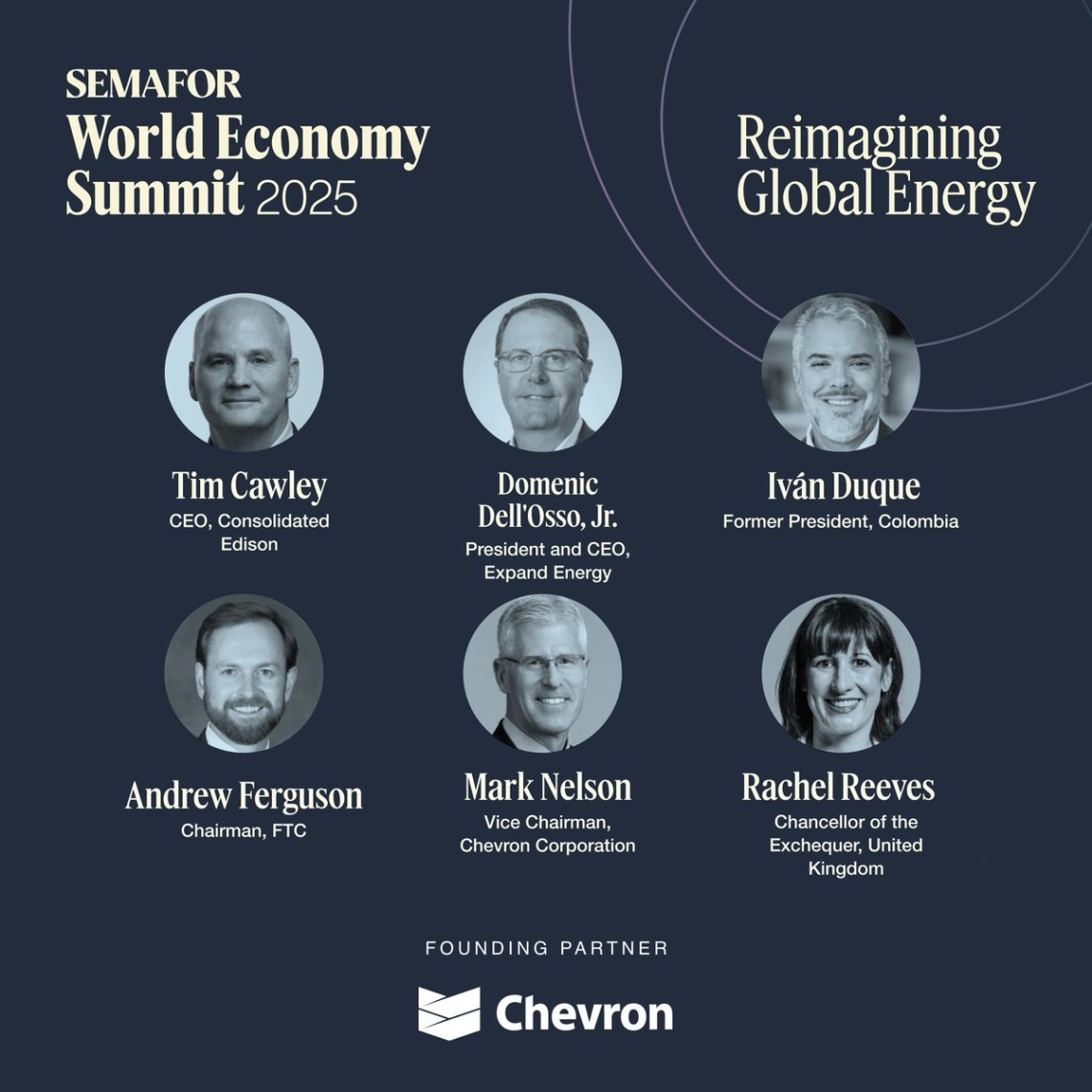 Tim Cawley, CEO, Consolidated Edison; Domenic Dell’Osso, Jr., President and CEO, Expand Energy; Iván Duque, Former President, Colombia; Andrew Ferguson, Chairman, FTC; Mark Nelson, Vice Chairman, Chevron Corporation; Rachel Reeves, Chancellor of the Exchequer, United Kingdom, and more will join the Reimagining Global Energy Session at the 2025 World Economy Summit. This session will examine how global energy frameworks can adapt to the diverse needs of nations — from infrastructure to economic dependence — and explore what an equitable energy transition looks like, especially for developing economies. April 23, 2025 | Washington, DC | Learn More |